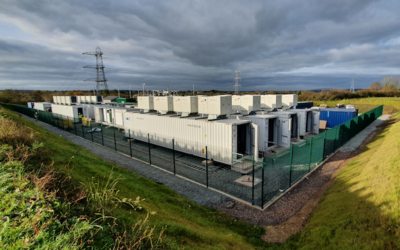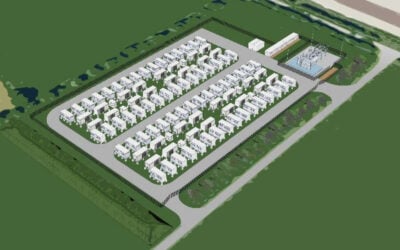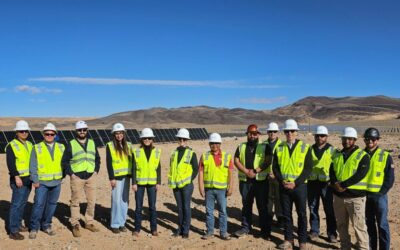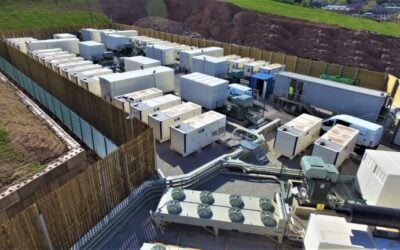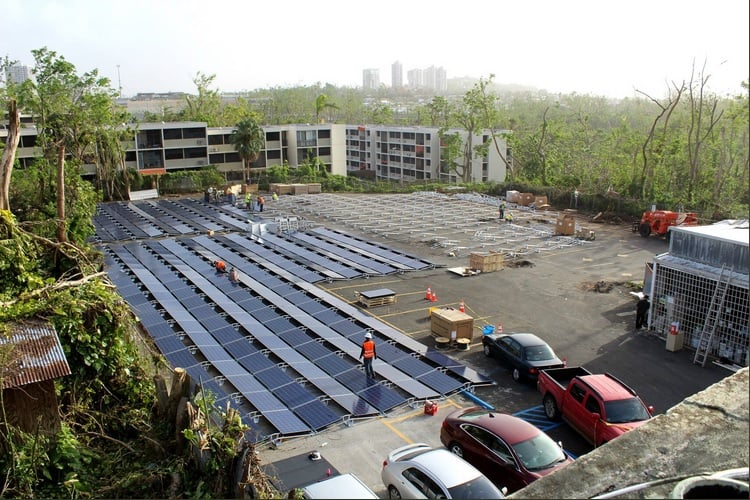
The Puerto Rico Electricity Board (PREB) has approved a plan to accelerate the adoption of battery energy storage system (BESS) technology in the US island territory.
Regulator PREB told Luma Energy, the US-Canadian joint venture (JV) responsible for the Puerto Rican electricity distribution network, that its proposal to contract with independent power producers (IPPs) for BESS resources was aligned with public power policy.
Enjoy 12 months of exclusive analysis
- Regular insight and analysis of the industry’s biggest developments
- In-depth interviews with the industry’s leading figures
- Annual digital subscription to the PV Tech Power journal
- Discounts on Solar Media’s portfolio of events, in-person and virtual
Or continue reading this article for free
The distribution provider, appointed after the privatisation of Puerto Rico Electric Power Authority (PREPA) assets, “informally proposed” its ‘Accelerated storage addition program’ (ASAP) in November last year.
Luma claimed ASAP could significantly reduce the time required to integrate BESS onto the grid, compared to Puerto Rico’s present system of renewable energy and energy storage procurements through tenders.
Under the programme, IPPs with current power purchase and operating agreements (PPOAs) with PREPA would add BESS at their locations, “on an accelerated basis,” according to PREB documents posted to the regulator’s website.
Luma’s preliminary estimate based on IPP interest was that ASAP could add around 360MW of energy storage output at 13 existing IPP facilities in two phases. The first 185MW phase could be implementable immediately, representing facilities where IPPs said no network upgrades or interconnection costs would be incurred. Some IPPs claimed first phase projects could be in commercial operation within 12 months, Luma said.
The second 175MW phase would require “minor interconnection work” and could get started shortly after the first.
According to the distribution company, creating a Standard Offer contract through ASAP over the existing RFP solicitation model has advantages.
Luma can model targeted costs for delivering services from BESS based on real-world assumptions that are lower than RFP cycle costs. Any IPP able to meet those targeted prices would be eligible to receive a contract.
Luma anticipated signing Standard Offers by the third quarter of 2024 to deploy the new BESS resources by the end of 2025.
Luma would dispatch the additional BESS capacity to provide voltage support, frequency regulation and other ancillary services.
Regulator PREB approved the concept, determining that ASAP was in line with integrated resource planning (IRP) that aims to increase energy storage capacity in Puerto Rico dramatically, ordering the utility to create Standard Offer contracts ahead of launching.
According to unconfirmed reports in local media from November 2023, one IPP on the island, Genera PR, received PREB approval for a plan to deploy a total 430MW/1,720MWh of battery storage across nine of its thermal generation plant sites.
US leader in residential batteries Puerto Rico needs to catch up at utility-scale
The island’s power infrastructure has been beset with problems, including PREPA’s bankruptcy and the destruction of as much as 80% of the grid through hurricane damage in 2017.
As an island disconnected from the mainland US grid, the cost of fuel imports to generate electricity drives higher electricity prices than the national average. Although it has set the goal of going 100% renewable by 2050, as of 2022, according to the US Energy Information Administration (EIA), only 6% of Puerto Rico’s electricity came from renewables.
In January this year, residential power prices averaged US$0.2112/kWh versus US$0.1545 US average, commercial at US$0.2266/kWh against a US$0.1268 average and industrial power on Puerto Rico cost US$0.2180kWh versus just US$0.081/kWh nationally, as per EIA statistics.
The island is targeting 1,500MW of BESS deployments to help meet its renewable energy goals, lower the cost of power and increase the network’s reliability and stability.
According to research group Wood Mackenzie, it was actually the biggest US residential energy storage market in 2023, with 287MW of deployments throughout the year, due largely to various incentive programmes for homeowners.
However, PR100, the US government modelling of Puerto Rico’s path to 100% renewables published in February, showed that along with ongoing growth in rooftop solar PV adoption and home batteries, plenty of utility-scale resources will also be needed.
To get to 40% renewable energy by 2025 even without taking offline approximately 4GW of existing thermal generators, 700MW of 4-hour duration energy storage would be needed along with 260MW-400MW of long-duration energy storage (LDES).
This would be alongside up to 340MW of onshore wind and between 2,600MW and 3,500MW of utility-scale solar PV, the National Renewable Energy Laboratory (NREL) found for the PR100 report.


